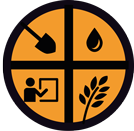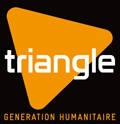AREA OF EXPERTISE

Multisectoral

AREA OF EXPERTISE

Multisectoral
FUNDING
Objectives:
From the start of the humanitarian intervention that followed the Darfour conflict, ECHO (European Commission Humanitarian Aid department) gave its support to TGH. Its support remains essential to achieve missions that are extremely complicated in terms of logistics and security and that require intense mobilization of human resources.
In Sudan, ECHO is therefore our major partner. Thanks to ECHO, together with the activities that it directly funds, TGH can also run programs funded by other agencies such as the United Nations; programs that would not suffice to maintain our presence in Darfour.
As early as June 2004, ECHO supported TGH by funding an aid program to IDPs in Ryad. In this camp, located on the outskirts of Geneina, 10.000 people had taken refuge from the fighting and exactions.
That first program built shelters, latrines, showers and other facilities providing an acceptable sanitary environment. It included hygiene awareness schemes. A potable water network was also created, supplying water to the camp and to areas on the borders of Geneina.
Following this program, and because it is necessary to preserve such services for the population, ECHO renewed its trust in TGH and funded an extension of our activities in more remote areas where humanitarian action was rare.
In April 2005, TGH launched an integrated program in Bindizi featuring “emergency relief”: supply of water, construction of latrines, distribution of non-food goods (jerry-cans, plastic tarpaulins, mosquito nets, etc). Following the implementation of 1st aid, and with ECHO’s help again, TGH extended its activities to Um Dukhun, in 2006. Today, the sum of TGH’s operations, supported by ECHO, assists over 150.000 beneficiaries.
The Darfour conflict is still running: its degree of violence and the threats that it represents for the civil population is forcing many families to flee their villages, thus multiplying the population in the camps and hindering significant movements of return. The help provided in the camps and the reactivity required to cover the needs of new IDPS demands support over time. Without such support, the situation will degenerate further. Thanks to ECHO's backing, TGH can continue its efforts to provide drinking water to displaced people, control the major vectors of sanitary risk, and follow and study the population’s permanent movements.